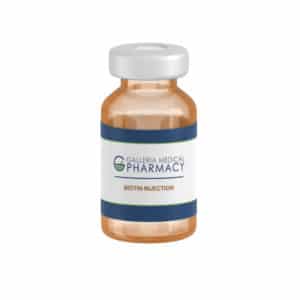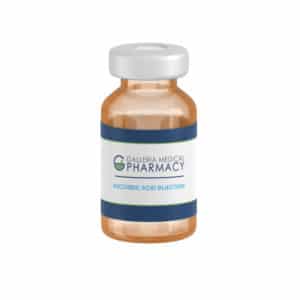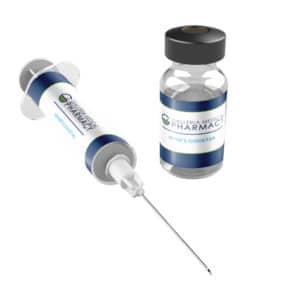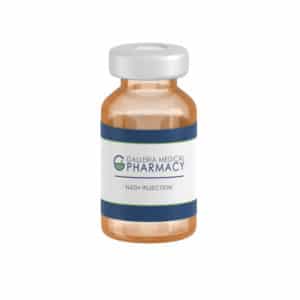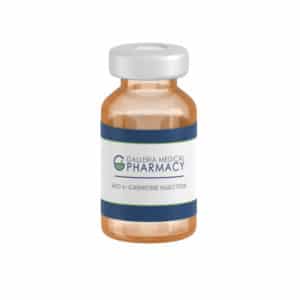Cholecalciferol (Vitamin D3) Injection
- Home
- /
- Products
- /
- IV Therapy
- /
- Cholecalciferol (Vitamin D3) Injection
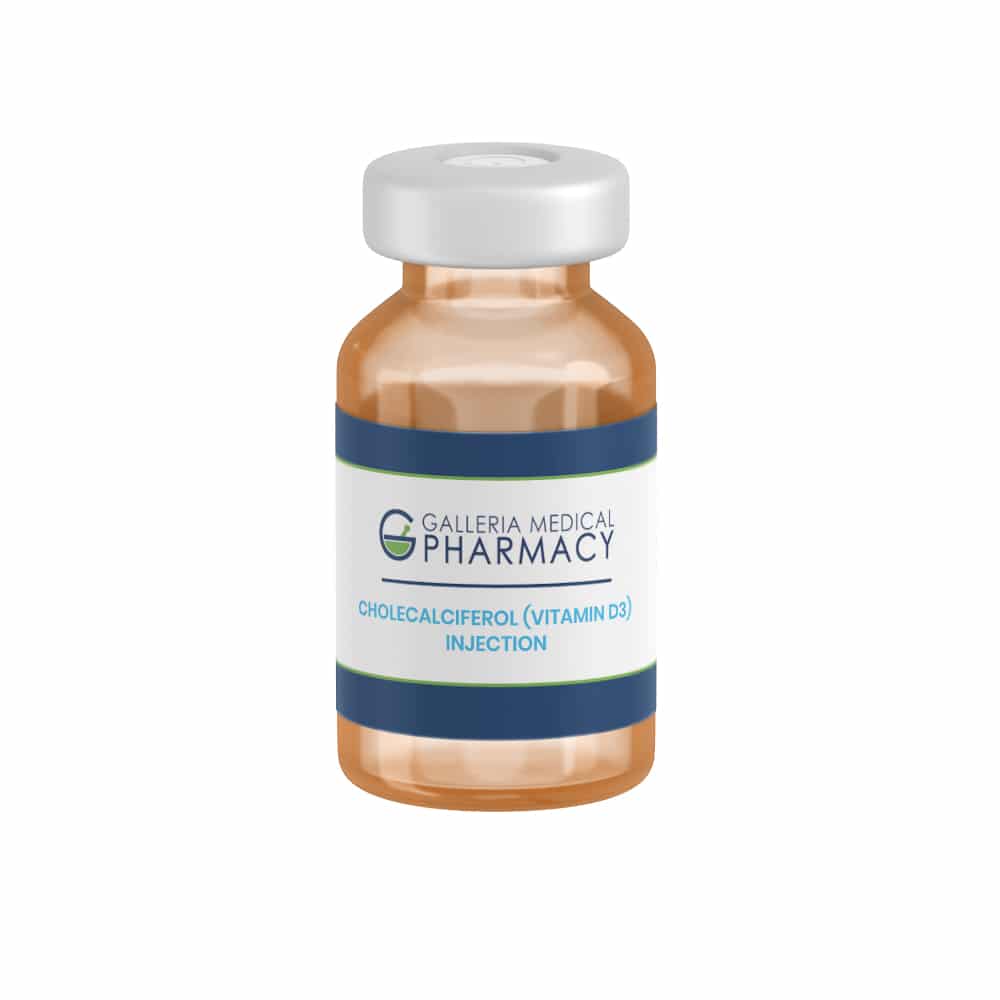
Overview
Cholecalciferol (Vitamin D3) is the more potent form of the two forms of Vitamin D available. The less potent form is called ergocalciferol (Vitamin D2).1 Vitamin D is responsible for the balance of calcium and phosphate. It is also required for normal bone growth and mineralization.
Vitamin D is fat-soluble, meaning it does not mix well with water.1 Dietary sources of vitamin D, include fortified milk and cereals, fish oil, fatty fish, and eggs from hens fed a diet rich in vitamin D. Cholecalciferol is also made naturally and efficiently by the skin after exposure to sunlight. Therefore, vitamin D is not a true vitamin in the sense that individuals with adequate exposure to sunlight do not require dietary supplementation. However, many people in the U.S. use sunscreen daily and sunscreens effectively block vitamin D production in the skin. Thus vitamin D deficiency is typically prevented by dietary intake in these individuals.
Vitamin D receptors are present throughout the body and researchers have begun to think of it as more like a hormone rather than a vitamin. There has been extensive interest in the possibility for vitamin D supplementation to inhibit the onset of cancer or prevent cardiovascular disease. The hypothesis is mostly based on studies with laboratory animals, but human trials have failed to support beneficial effects vitamin D supplementation in preventing such diseases.2
Vitamin D has also been extensively studied in relation to the immune system. Evidence suggests that vitamin D protects against colds and the flu. One study showed that regular vitamin D supplementation is comparable to the flu vaccine for reducing the risk of acute respiratory infection from flu-like illnesses.3 Another trial showed that high-dose vitamin D is an appropriate option for treating the flu as demonstrated by prompt relief from symptoms, rapid decrease in viral loads and disease recovery. In addition, the study suggested that high-dose vitamin D is possibly safe for infants.4
Indications
Vitamin D supplementation is indicated for the prevention and treatment of vitamin D deficiency and rickets.
How Supplied
Cholecalciferol is commercially available as a combination of vitamins in an injectable solution. It is also available as a dietary supplement.1 Ergocalciferol is available as an oral prescription product. Patients that would benefit from the injectable administration of cholecalciferol without the addition of other vitamins or in a different dosage may be prescribed compounded Cholecalciferol Injection as determined by a health care provider. The most popular formulation compounded at Galleria Medical Pharmacy is Cholecalciferol 100,000 IU/mL Injectable Solution, though other strengths and formulations may be available upon request.
For best results, Cholecalciferol Injection should be administered under professional supervision by a healthcare practitioner. As per FDA regulations, compounds prepared by a pharmacy are not intended for office use (e.g., office stock of a drug that is administered to multiple patients). As such, this preparation requires a prescription, which is then administered to the specified patient by a healthcare practitioner at their practice.
Storage
Store this medication at 68°F to 77°F (20°C to 25°C) and away from heat, moisture and light.
Keep all medicine out of the reach of children. Throw away any unused medicine after the beyond use date. Do not flush unused medications or pour down a sink or drain.
Reference
- Nasim B, Al Sughaiver HMZ, Abdul Rahman SM, Inamdar RFB, Chakaki R, Abuhatab S. Efficacy of Vitamin D3 versus Vitamin D2 in Deficient and Insufficient Patients: An Open-Label, Randomized Controlled Trial. Ibnosina Journal of Medicine & Biomedical Sciences. 2019; 11(2): 57-61.
- Manson JE, Cook NR, Lee I-M, etc. Vitamin D supplements and prevention of cancer and cardiovascular disease. New Eng J Med 2019; 380:33-44.
- Adrian R Martineau, et al. Vitamin D supplementation to prevent acute respiratory tract infections: systematic review and meta-analysis of individual participant data. BMJ, 2017.
- Zhou, Jian MD*; Du, Juan MD*; Huang, Leting MD†; Wang, Youcheng MD‡; Shi, Yimei MD‡; Lin, Hailong MD†Preventive Effects of Vitamin D on Seasonal Influenza A in Infants: A Multicenter, Randomized, Open, Controlled Clinical Trial, The Pediatric Infectious Disease Journal: August 2018 – Volume 37 – Issue 8 – p 749-754.
Compounding Pharmacy Statement
This preparation is compounded with drug components whose suppliers are registered with the FDA. While Galleria Medical Pharmacy adheres to USP <797> guidelines and applicable state and federal regulations to meet the required quality standards, the statements made regarding this preparation have not been evaluated by the FDA for safety or clinical effectiveness. As such, this preparation is not intended to diagnose, treat, cure, or prevent any disease. For inquiries concerning this preparation, please contact (504) 267-9876.
